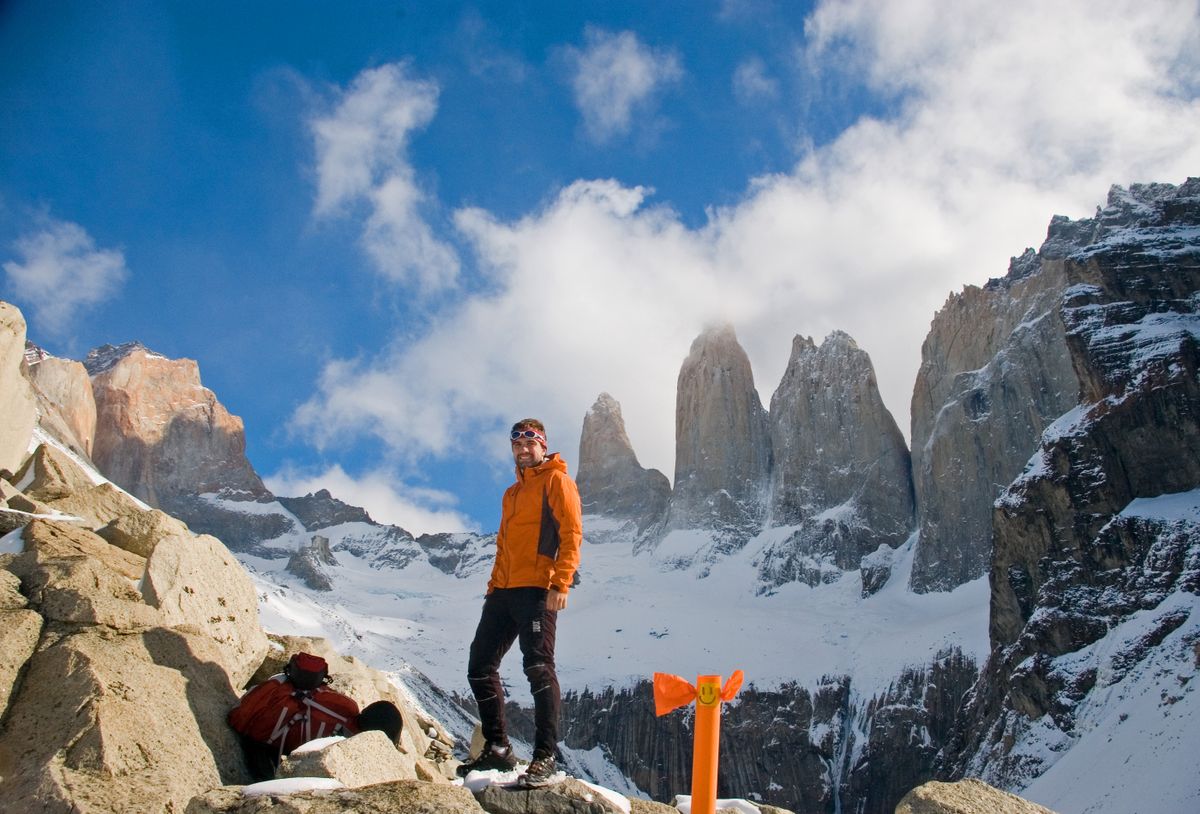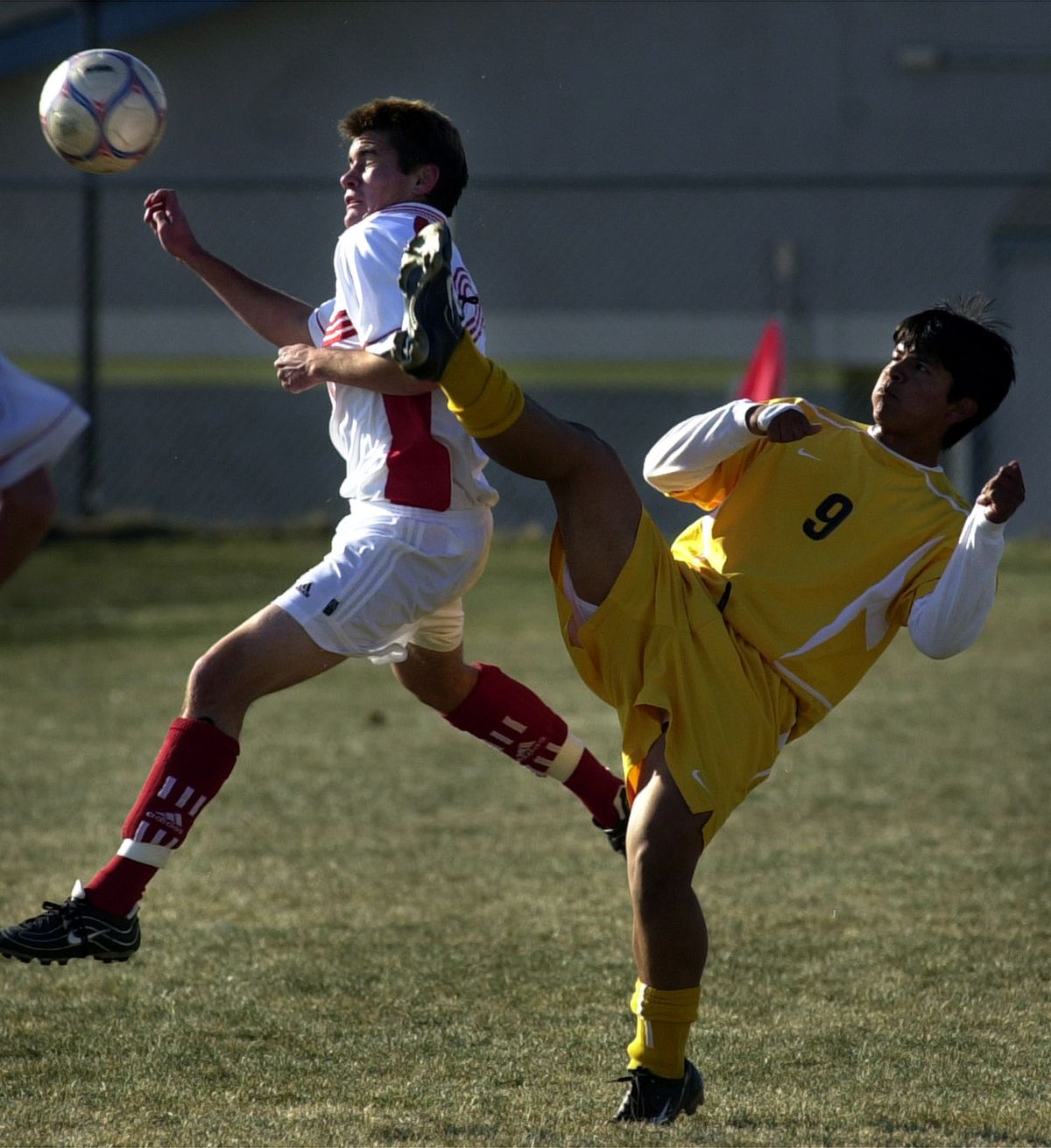Racers put trust in Sandpoint native
Charting rugged course
Now: Lee France backpacking in Torres Del Paine National Park in Chile, near where the Patagonian Expedition Race begins next week.Photo courtesy of Lee France (Photo courtesy of Lee France / The Spokesman-Review)
When teams of elite athletes from around the world take off on the multi-day Patagonian Expedition Race next week in one of the wildest places on earth, they will find their way using a map created by Lee France of Sandpoint.
Four-person teams of professional athletes from the United States will join those from France, Spain, Croatia, Canada, Israel, Brazil, Argentina, Chile and Germany as they use the detailed maps to chart a 500-kilometer course through unforgiving landscape in Chile where the weather can change every 10 minutes. They will cross glaciers, fjords and sea channels using orienteering, kayaking, mountain biking and rope work, only sleeping as much as they deem necessary.
“There’s going to be 40 people out there and their maps are the most vital part of them succeeding or failing. They’re going to be holding what he’s been very much on the forefront of creating,” said Jordan Harvey, who works in media relations for the race, which is celebrating its seventh year.
For the 23-year-old France, who excelled on Sandpoint High School’s soccer team and as a cross country skier with the Sandpoint Ski Team, the job was a dream come true. It combined his recent college degree in geographic information systems with his lifelong passion for the outdoors in a place he’d dreamed of exploring.
“It’s amazing. I still can’t believe it all happened,” said France, who had never been outside the country before, aside from trips to Canada. “It was a life-changing experience for sure. I thought – if I could go there, I could go anywhere.”
The race is considered one of the most challenging of its type. Last year, only four of 11 teams finished, and this year’s race is expected to take at least seven days. Athlete testimonials from past years describe advancing through swampy forests filled with fallen trees, kayaking across sea channels, and ascending glaciers, walking through places where few people have travelled. Quoted on the race Web site, Spanish athlete Antonio de la Rosa called the race “the toughest test that we have ever undertaken.”
The race also strives to represent the same inclusive values as the Olympics and limits the number of teams in order to minimize environmental impact.
“They use the map that I made to find these coordinates, then orienteering using a map and a compass,” France said. “It’s the fastest team getting to all these checkpoints. They’re pretty much going nonstop for like 10 days.”
France’s childhood in North Idaho, with his sister, Kylie, and parents, Jared and Coral, prepared him well for a life of outdoor adventure. The family took numerous ski and backpacking trips to places including Kimberley and Panorama in Canada, the Methow Valley, the Idaho Selkirks, Canadian Rockies and Glacier National Park.
France made All-North Idaho in soccer in 2002, graduating the following year. He followed his love of cross country skiing to a community college team in Bend, Ore., transferring to Montana State University in Bozeman and finally to Northern Arizona University, where he graduated in 2007 with a degree in geographic information systems (GIS).
During college, France worked summers for the forestry investment firm where his father works. He helped with the company’s road inventory, Jared France said, including collecting data using a global positioning system (GPS). That information is part of the company database, his father said.
After college, France looked for cartography jobs that would allow him to work outside and found an advertisement for an internship with the expedition race. Though the internship was unpaid, it offered room and board in Patagonia, an area he and his sister, Kylie, who played soccer at NAU and also excelled as a cross country skier, had dreamed of exploring. France was one of about 150 applicants, he said.
“I was like, Oh, my gosh, this is where I want to go. This is pretty much a dream job,” he said. But he thought, “I’m never going to get this. There’s no chance.”
But he did. For four months, from September to December, he pulled together information from limited map sources throughout the region to develop as detailed a map as possible. France said race director Stjepan Pavicic only revealed the course to him in order to keep it top-secret. The race begins Feb. 10.
Pavicic said he was so impressed with France’s work that he hopes to bring him back to work on other projects coordinated by his company, Nomadas Outdoor Services.
“He achieved optimal results of the highest quality in short amounts of time,” Pavicic said, via email and through an interpreter, with regards to France’s work.
“He had to manage a wide range of scales, manage information in many formats, organize different layering elements that are very uncomfortable to work with, and incorporate data documents and land data, as well as worry about finishing on time while incorporating graphic design considerations.”
France said the job was complicated because no map existed with the degree of detail needed.
He had to pull information from a variety of sources working in a foreign environment with only three years of high school and college Spanish. He pulled place names of waterways, lakes, mountain ranges, and glaciers from old maps. He contacted Chile’s park service and secured its data layers of national parks and reserves to add to the map.
“The thing with maps, they’re specialized for certain things,” France said. “Anybody could get a map of Patagonia, but as far as the one for the race course, they were much smaller scale. It’s not like how well we have the United States mapped out. It’s all a fairly unmapped area as far as that degree of detail.”
France also spent time backpacking and exploring the region, meeting people from all over the world and developing a serious travel bug. He returned home in time for Christmas and is coaching Sandpoint’s cross country ski team and applying for other jobs, while pondering a return to Chile in the fall. He has his eye on a summer job in Alaska – mapping wildlife habitat for a conservation foundation.
“It’s always been a dream to work in Alaska,” France said. “I’m hoping this experience in Chile is eye-catching enough that they’re interested.”

